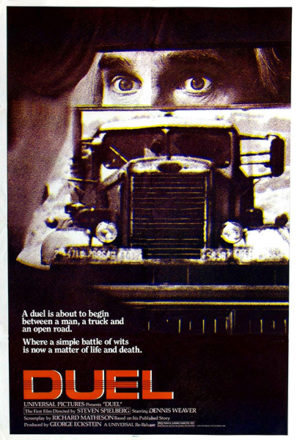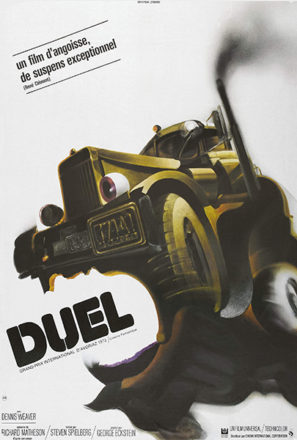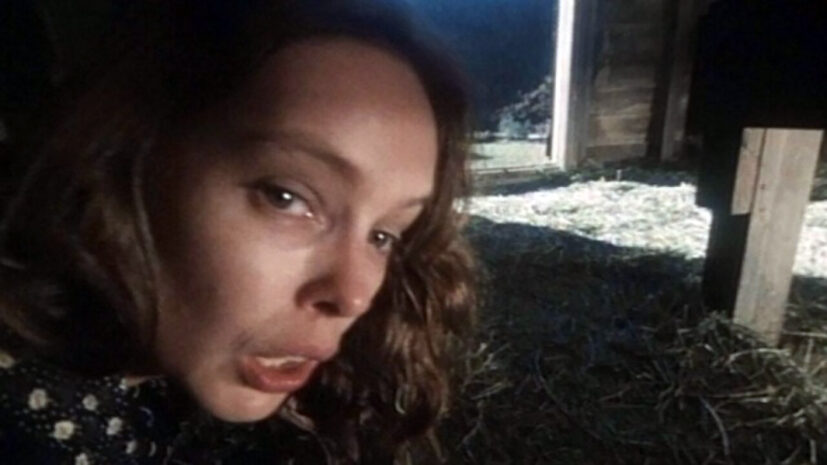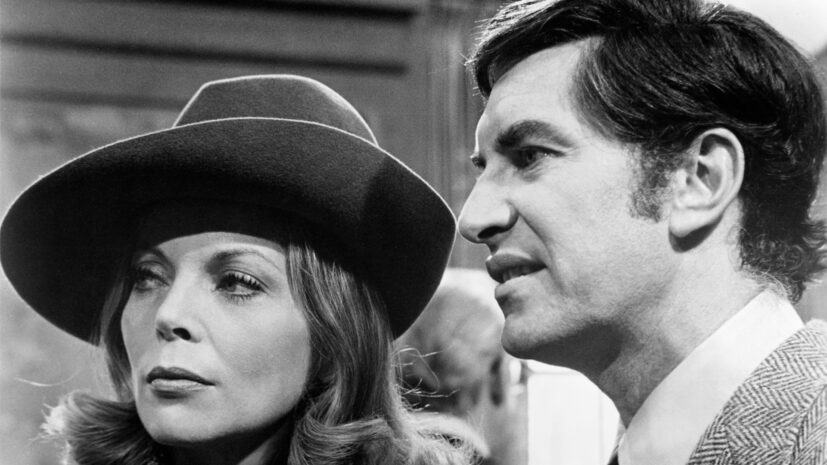
"I'd like to report a truck driver who's been endangering my life."
 Click to play
Click to play
Theatrical Trailer
Duel
Release Date: November 13, 1971
Steven Spielberg made the move from episodic television direction to the burgeoning form of made-for-television movies in late 1971 with Duel, based on the story and teleplay by genre stalwart Richard Matheson (The Twilight Zone) and concerning David Mann, a milquetoast suburbanite on a drive to a business meeting through rural roads, randomly targeted by a killer in a 18-wheeler tanker truck.
Matheson's short story "Duel" was published in the April 1971 issue of Playboy. The idea came to Matheson in 1963, on the already tense day when President Kennedy was assassinated, when a trucker dangerously cut him off on a California freeway. By Matheson using this personal near-death experience, he tapped into an auto-obsessed society's fear of destruction of the self on the road at the hands of a mad motorist.
Steven Spielberg’s secretary gave the issue of Playboy to her boss, thinking the tense short story would be of interest to him. Spielberg was indeed interested, and he pitched his bid to helm the picture as a theatrical feature to producer George Eckstein, who hired him on the strength of the pitch and Spielberg's recent Columbo episode Murder by the Book. Unable to secure a big name theatrical film actor for the lead role, Duel was relegated by Universal to release as a TV movie-of-the-week.
Dennis Weaver, then starring in Universal Television's series McCloud, was cast as Mann, the henpecked businessman caught in the inexplicable events of the film when he is cut off on a California desert road by a rusty hulking truck. From this early point on, the entire thrust of the film is man vs. beast in a struggle for survival. The plot of the film is simply the story of a trucker progressively stepping up Mann's paranoia and fear, through toying to outright attempts at murder. Such a sparse, tight narrative serves the film well, and Spielberg plays the basic story to the hilt for thrills, plain and simple.
With a mere sixteen-day shooting schedule, the guerrilla pace of the production really lends to the film itself. To help keep his focus on the picture as a whole during the quick shoot, Spielberg had a giant overhead illustrated map of the desert roads they shot on hung around his hotel room walls during production. Each day the production captured more footage, he would tick completed shots off his storyboards and map, helping him keep track of the work he had ahead of him, and helping him visualize the film throughout the short, grueling shooting schedule.
For such an early effort, in hindsight, Duel displays a number of very important themes that would carry through Spielberg's filmography: an ordinary man in extraordinary circumstances, man, often out of his element vs. a force larger than himself, and to a lesser extent, the story of a man struggling to find his identity as a head of a family that is coming apart at the seams (this latter theme being seem in the added theatrical scenes).
The television film was given the honor of having a run of print ads and a press screening, something rare for the likes of television product back then, but indicative that Universal knew they had a special film on their hands. After the film aired on November 13, 1971, Spielberg was offered a handful of firm directing offers for feature films, while Duel was nominated for two Emmys—it won one for best sound editing—and was also nominated for best TV film of 1971 by the Golden Globes.
Duel was later released theatrically in Europe and other international territories in 1972-1973 to much critical acclaim for the young director. Film critic Dilys Powell of London's Sunday Times, wrote of Duel, "You would hardly think that so slight, indeed, so seemingly motiveless a plot would be enough for a film of ninety minutes. It is plenty. It is plenty because the increase in tension is so subtly maintained, because the rhythm and the pace of movement is so subtly varied, because the action, the anonymous enemy attacking or lying in wait, is shot with such feeling for dramatic effect."
And of Duel's young director, Powell proclaimed, "Mr. Spielberg comes from television; he is only twenty-five. No prophecies, but somehow I fancy this is another name to look out for."
For a detailed, book-length account on the making of Duel with memories from Steven Spielberg and many of the film's crew—as well as the shooting script by Richard Matheson—read Steven Spielberg and Duel: The Making of a Film Career, by Amblin.com editor Steven Awalt.
About the Film
About the Film
CAST- DENNIS WEAVER,
- EDDIE FIRESTONE,
- GENE DYNARSKI,
- LUCILLE BENSON,
- TIM HERBERT,
- JACQUELINE SCOTT,
- LOU FRIZZELL,
- CAREY LOFTIN,
- DALE VAN SICKEL
- STEVEN SPIELBERG
- RICHARD MATHESON
- GEORGE ECKSTEIN
- JACK A. MARTA
- ROBERT S. SMITH
- FRANK MORRISS
- BILLY GOLDENBERG
- PRIMETIME EMMY AWARDS: OUTSTANDING ACHIEVEMENT IN FILM SOUND EDITING
Where to Watch
Film Stills
- Film Stills
- Production Stills
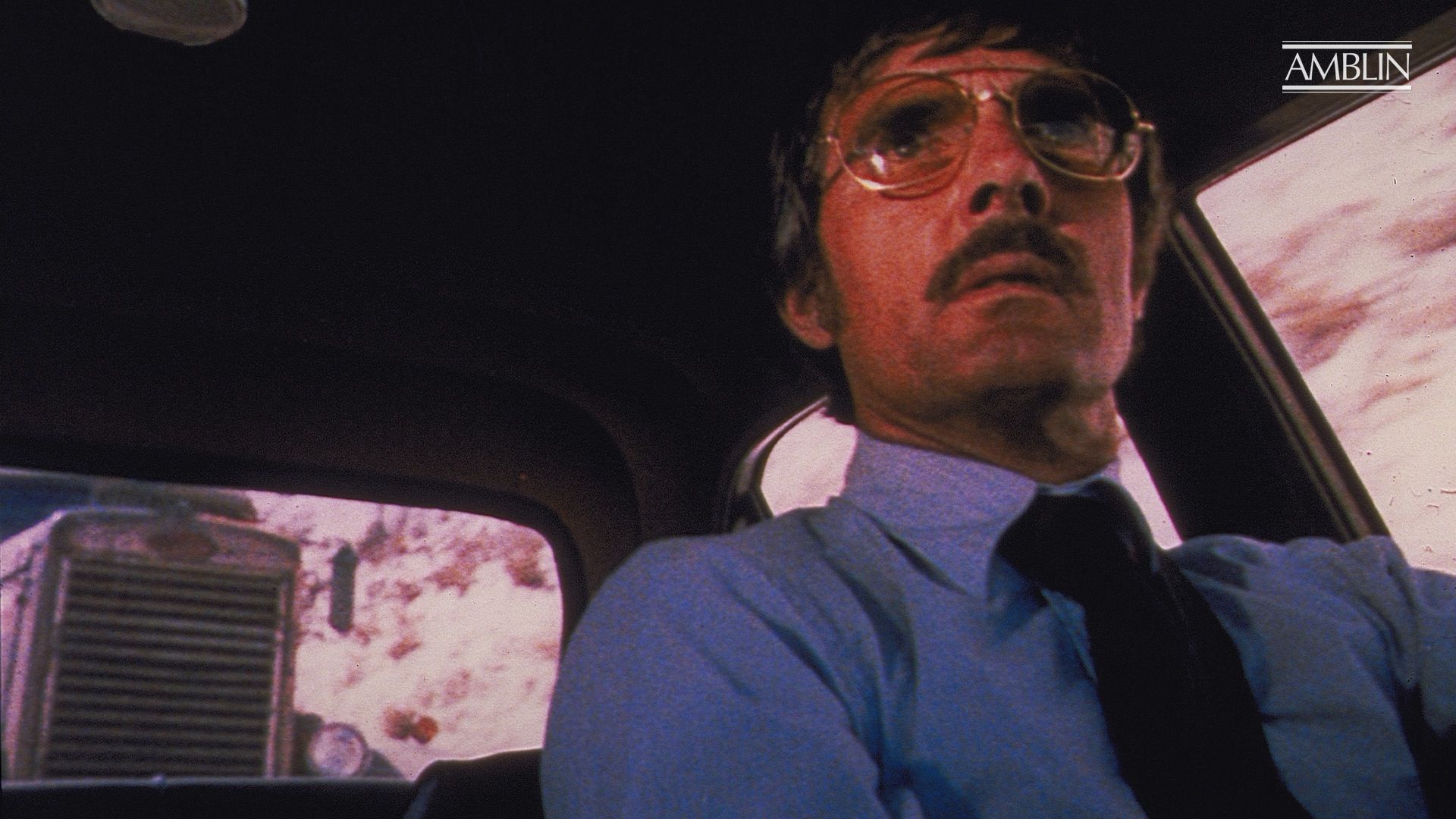 1 / 15
1 / 15
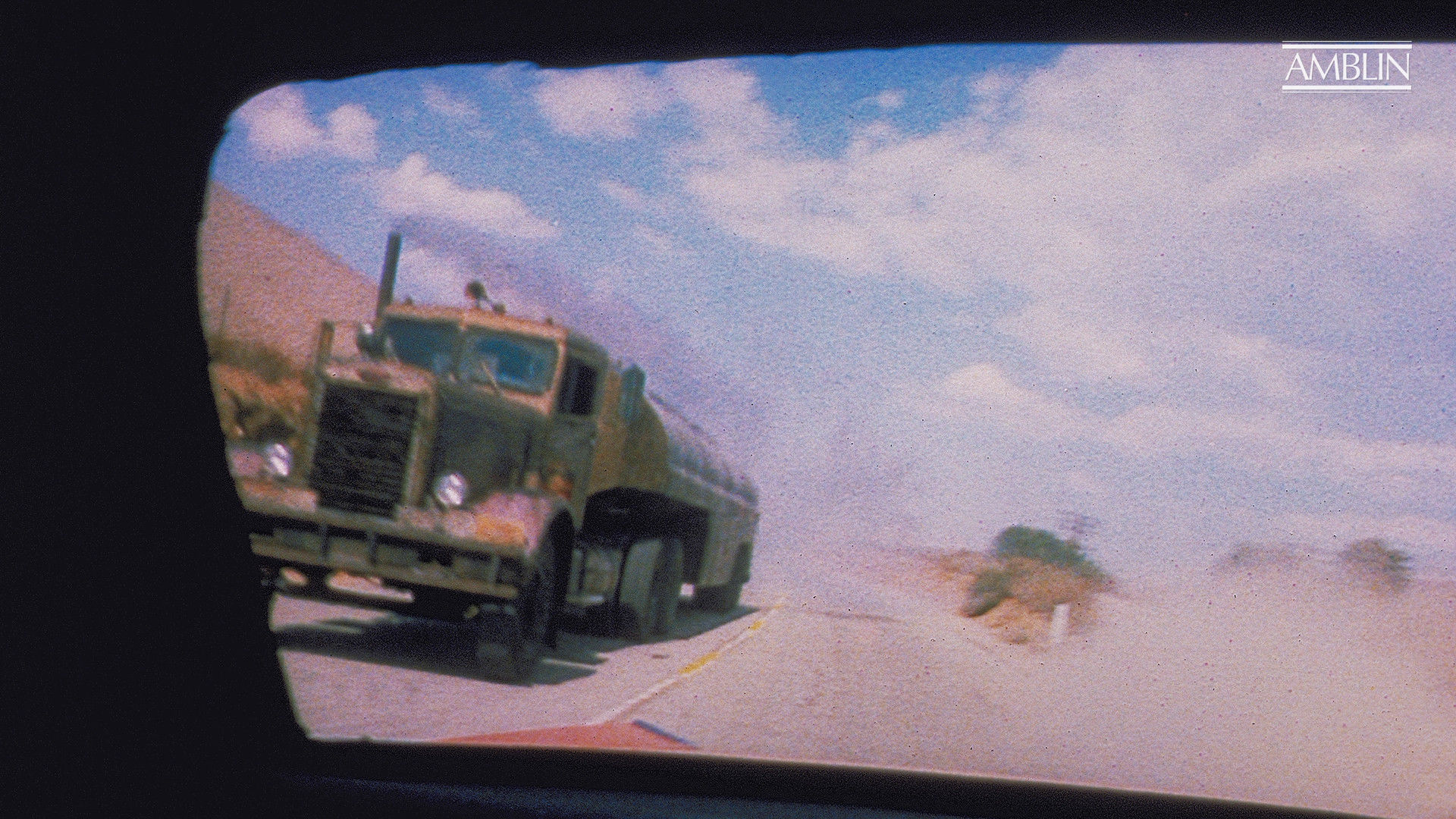 2 / 15
2 / 15
 3 / 15
3 / 15
 4 / 15
4 / 15
 5 / 15
5 / 15
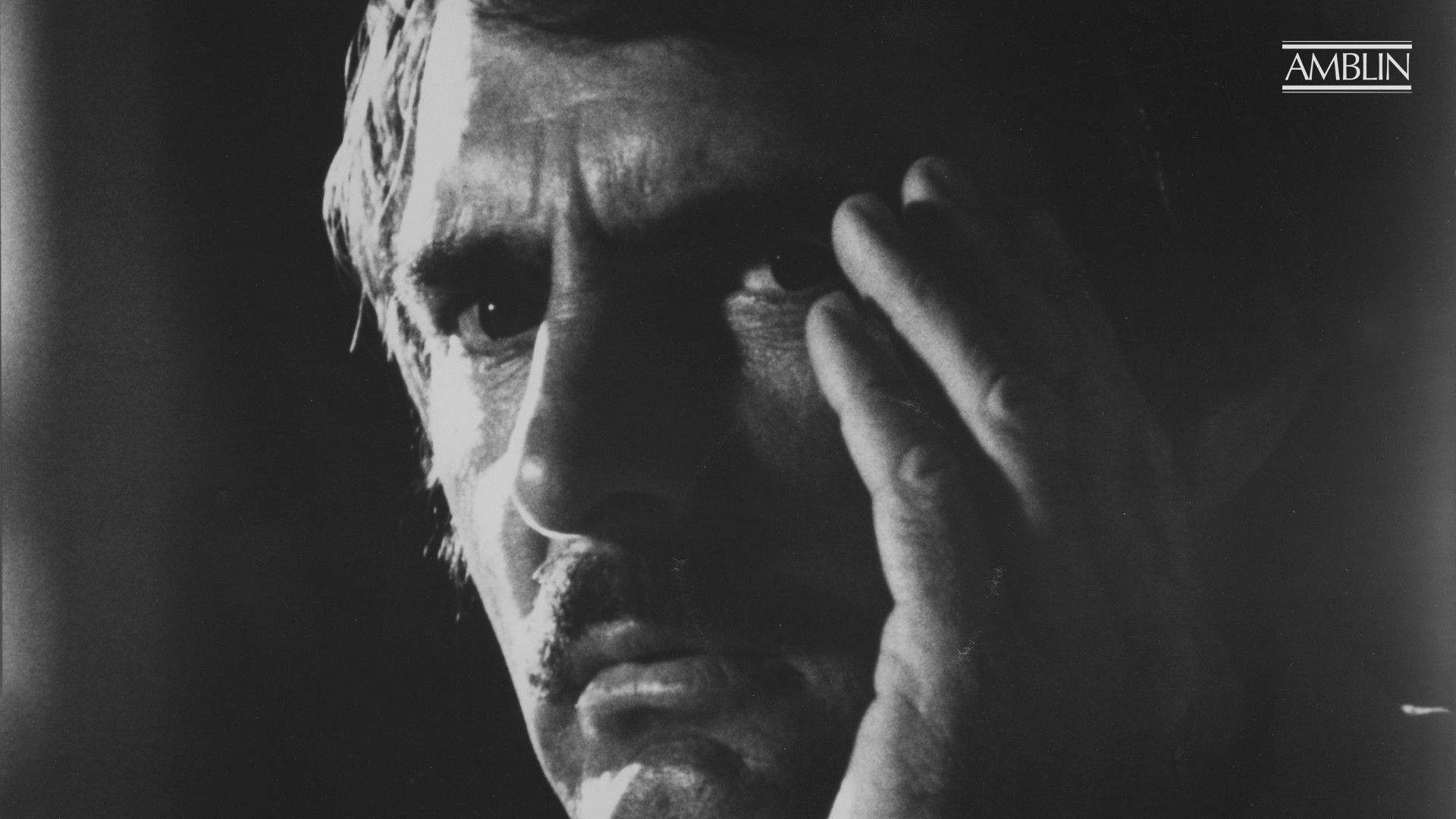 6 / 15
6 / 15
 7 / 15
7 / 15
 8 / 15
8 / 15
 9 / 15
9 / 15
 10 / 15
10 / 15
 11 / 15
11 / 15
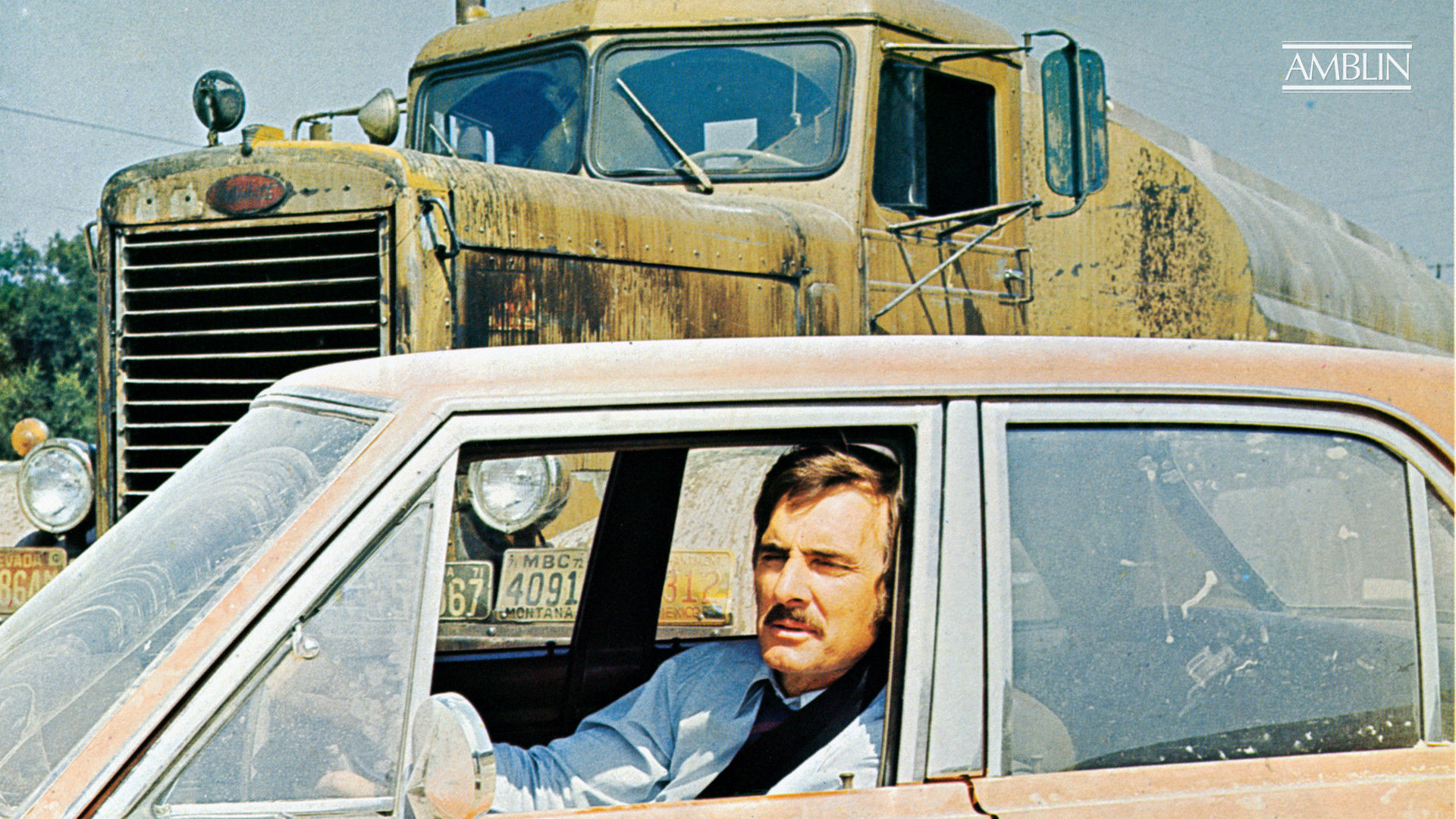 12 / 15
12 / 15
 13 / 15
13 / 15
 14 / 15
14 / 15
 15 / 15
15 / 15















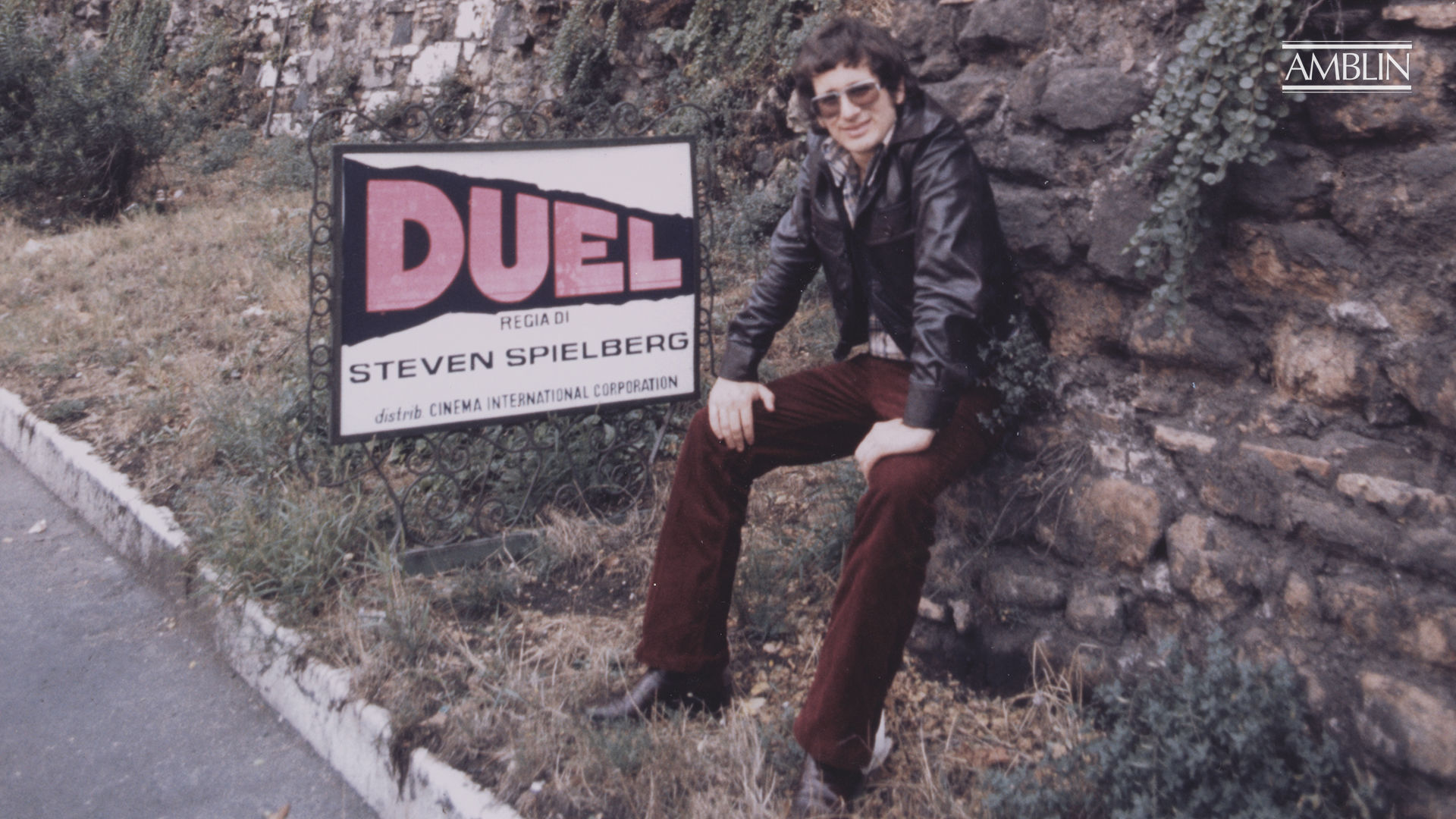 1 / 2
1 / 2
Steven Spielberg seated on the side of a road in Italy next to a sign for "Duel" during the film's European theatrical release.
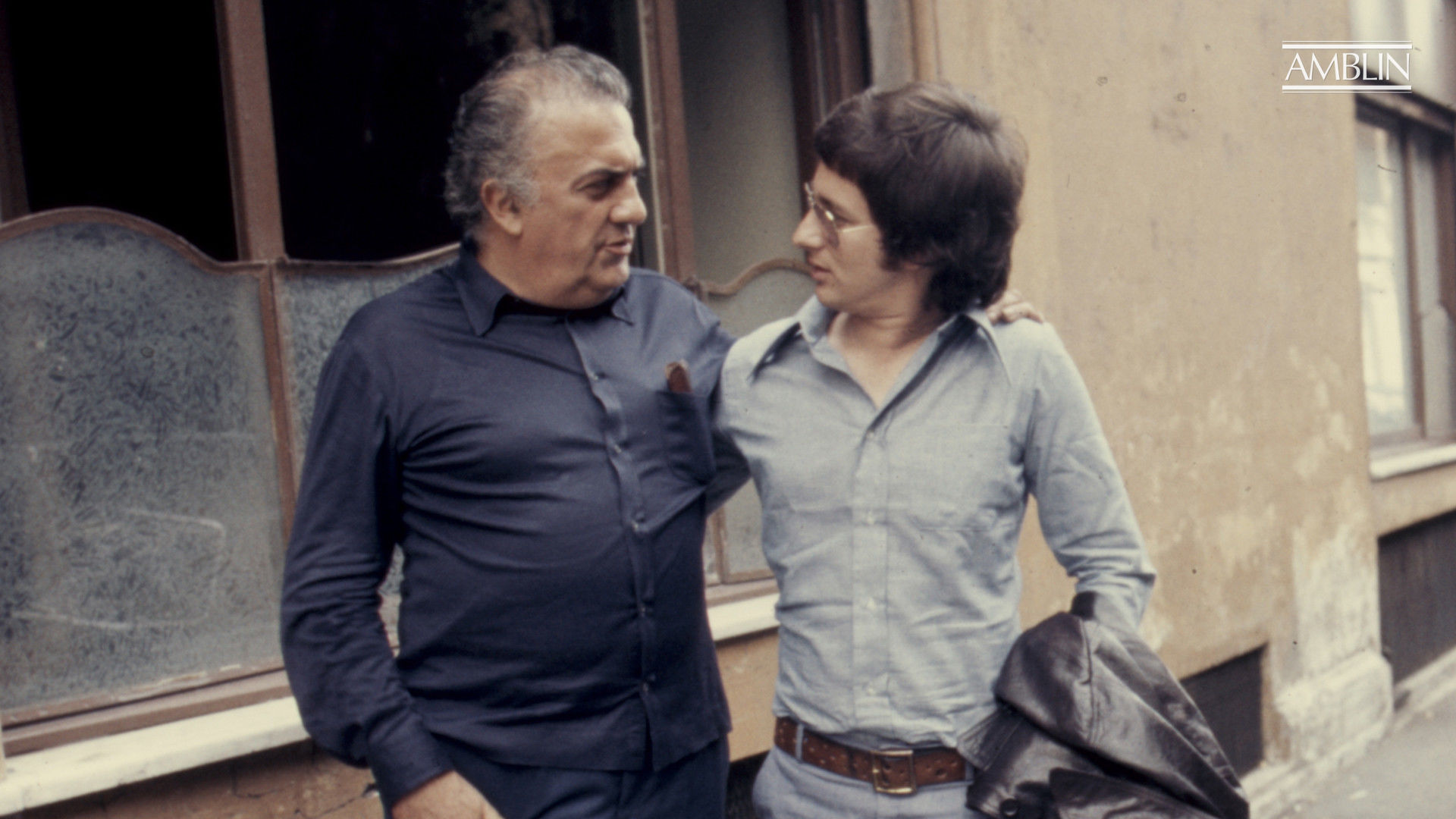 2 / 2
2 / 2
While touring Europe with the theatrical edit of "Duel" in 1972, Spielberg had the good fortune to meet with Italian filmmaker Federico Fellini, a self-professed admirer of the younger director's film.







